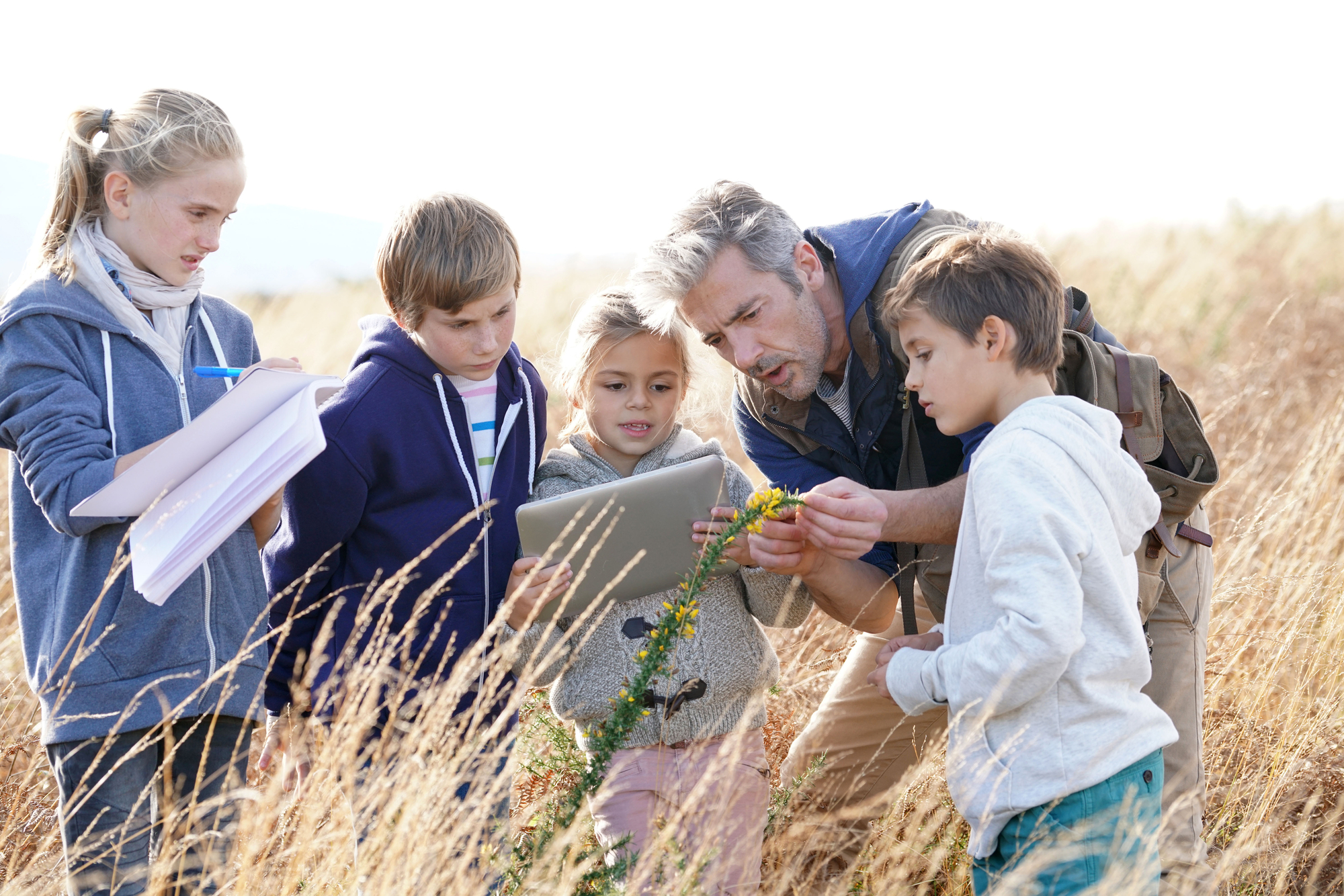Reflection for Children
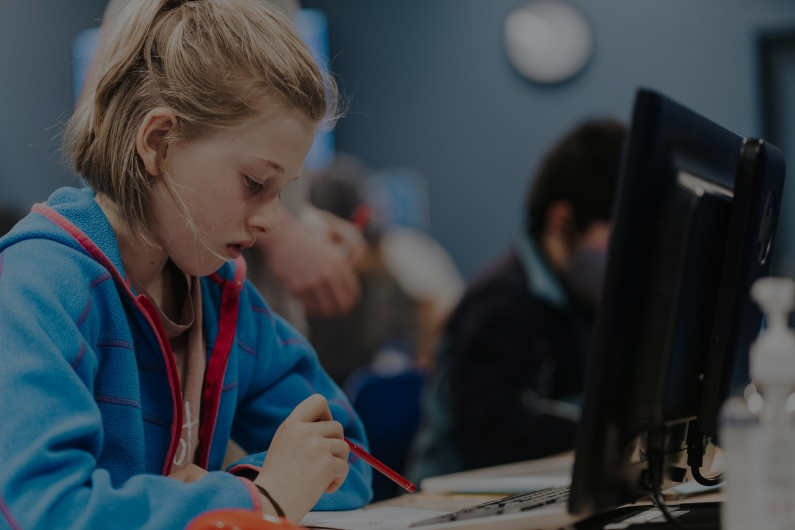
In the whirlwind of childhood, where playing and learning collide, one often-overlooked tool has the potential to empower young minds in profound ways - reflection.
Encouraging children to reflect isn't just about pausing to think; it's about nurturing skills that lay the groundwork for questioning, memory, investigation, explanation, and consideration.
This practice unlocks a treasure trove of benefits, helping children learn from their experiences, develop positive interpersonal skills, and become critical thinkers who embrace both achievements and mistakes.
Reflection is an important skill that shapes children's success in both school and life. Join us as we explore the remarkable benefits of reflection for children.
Is your child struggling to keep up with schoolwork? Are they falling behind? Are they bored in class? Or are you looking for extension work for your child? Check out our eBook to learn more about how we help your child improve academically and build confidence through our in-centre after-school tuition.
Self-Reflection: Discovering Their Learning
Reflection acts as a mirror that children can hold up to themselves. It's a process that helps them understand their emotions, strengths, weaknesses, likes, and dislikes. By fostering strong reflection skills, parents can empower children to cultivate a strong sense of self.
Through self-reflection and self-awareness activities, children can uncover what truly makes them happy and where their interests lie.
Imagine the excitement of a child becoming self-aware and unearthing a new skill in sport, or a newfound enthusiasm for maths, English, computing, or art, this sets the stage for future achievements.
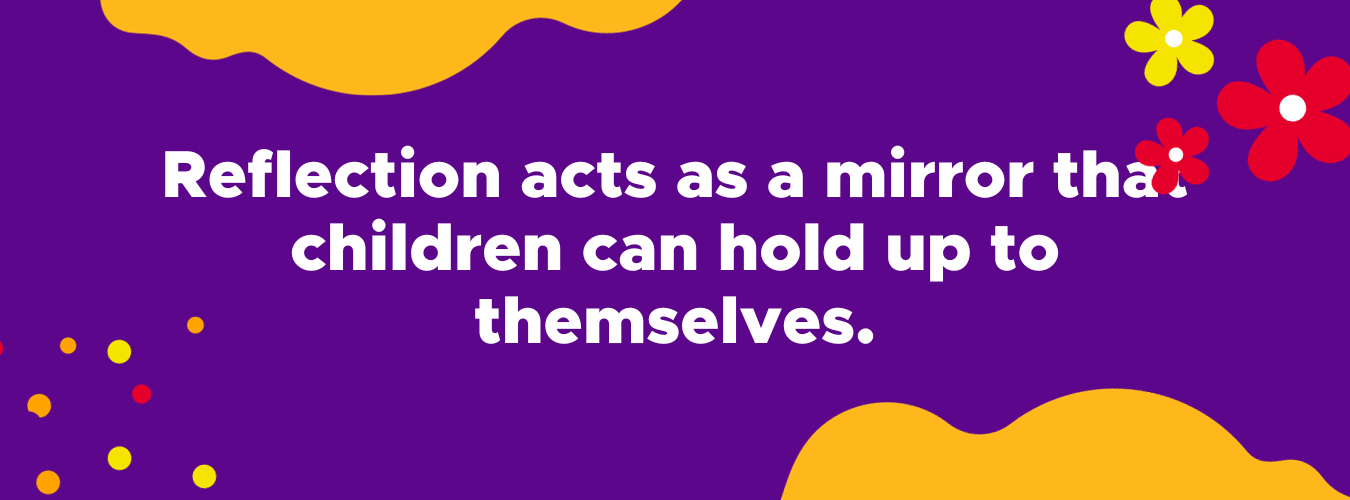
Understanding Others: Building Empathy
Reflection isn't just an inward journey; it's a bridge to understanding others. For instance, consider Maya, a 10-year-old who reflected on a disagreement she had with her best friend. Through introspection, she realised that her friend's perspective was valid too, leading her to approach the situation with empathy and mend their friendship.
When children reflect on their interactions with friends, family, and teachers, they gain insight into their relationships and what drives those around them. Furthermore, reflecting on feedback, whether it's praise or criticism, helps children process information and become aware of their reactions.
This learning process also helps them gain emotional intelligence and fosters empathy, allowing young children to grow by considering the perspectives, experiences and feelings of those around them.
Personal Development: Turning Challenges into Growth Opportunities
Growth often springs from adversity, pushing us beyond our limits. When children encounter challenges, reflection becomes a tool for transformation.
Take the example of Alex, a 14-year-old who struggled with a complex science experiment. Instead of giving up, he reflected on his approach, sought guidance from others, and eventually succeeded.
By guiding children to dissect what went wrong and how they and other children can learn from it, reflection turns setbacks into stepping stones. It's an exercise in resilience, a trait that becomes deeply ingrained through reflective practice.
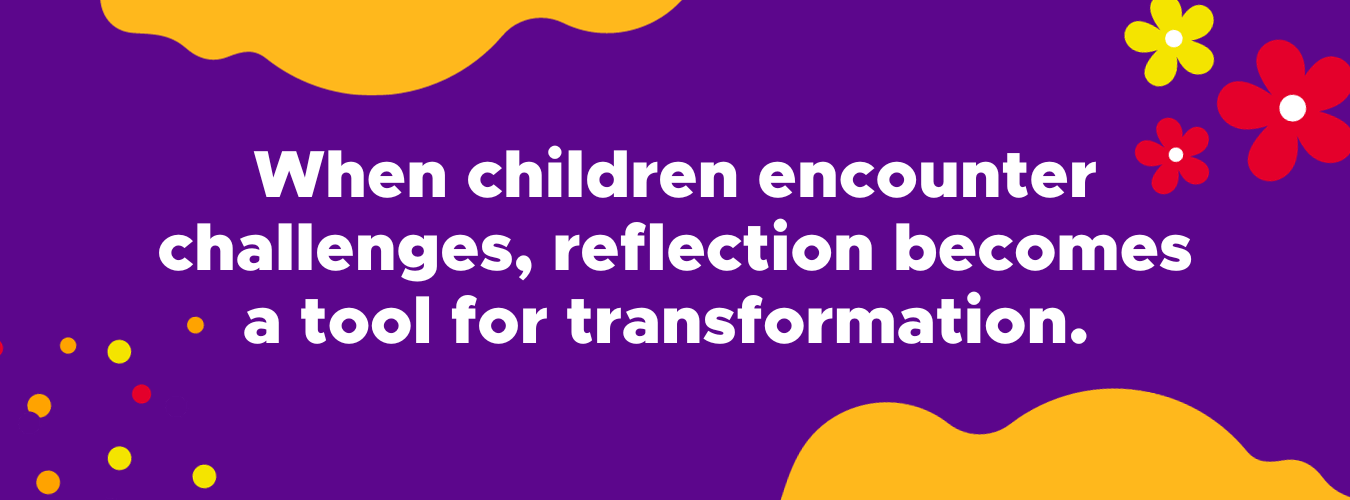
Building Confidence: Nurturing Resilience
As children understand themselves better, embrace personal growth, and build empathy, their confidence naturally flourishes. Reflection acts as the cornerstone of this process. It equips children with a secure knowledge base, a strong sense of self, and the confidence to embrace new challenges.
Addressing Weaknesses: A Foundation for Growth
Reflections allow parents and children to zero in on weaknesses. By openly discussing struggles and challenges, parents can provide the support needed to overcome obstacles. For instance, consider Lily, who reflected on her struggles with multiplication. Through self-reflection, her parents identified the need for additional practice and helped her build skills and develop strategies to improve.
Whether it's enrolling in after-school tutoring or seeking extra guidance at school, this ensures that weaknesses are acknowledged and transformed into strengths in the year ahead.
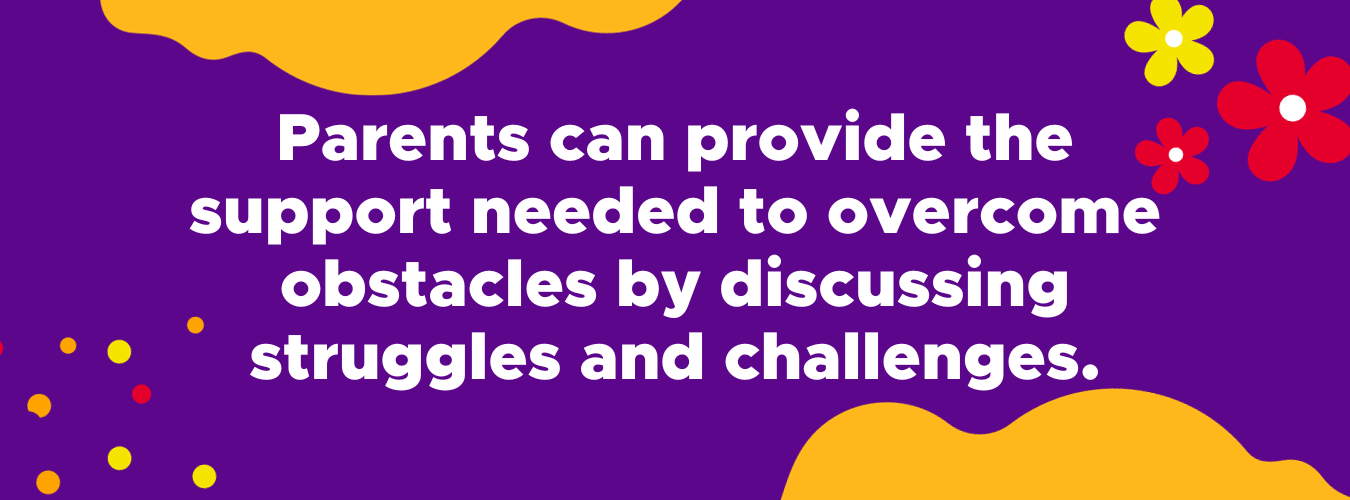
Celebrating Accomplishments: Embracing Positivity
While reflection aids in growth, it's also a time for celebration. While identifying areas for improvement, remember to acknowledge and celebrate your child's achievements. No accomplishment is too small; each positive step forward is a testament to effort, focus and hard work.
Create an achievement jar where your child can write down their accomplishments, big or small, and place them inside. Whenever they doubt their abilities, they can pull out a note from the jar as a reminder of their successes.
Revisiting Goals: The Learning Process
Reflecting on goals is a powerful way to encourage children to create a path forward. As children evaluate their goals, parents can guide them in understanding why some were achieved and others weren't. This process sets the stage for future success.
Help your child set SMART (Specific, Measurable, Achievable, Relevant, Time-Based) goals. This framework encourages clarity and actionable steps, making reflection and goal-setting more effective.
Developing Skills: Equipping for Life
Reflective practice nurtures memory, questioning, investigating ideas, learning and considering other children's interests - skills that form the bedrock of critical thinking. As children develop these skills, they're armed with tools that extend far beyond the classroom.
Encourage your child to write and maintain a curiosity journal. Whenever they have a question or want to explore a topic, they can jot it down. Regular self-reflection cultivates a habit of inquiry, which teaches investigation practices.
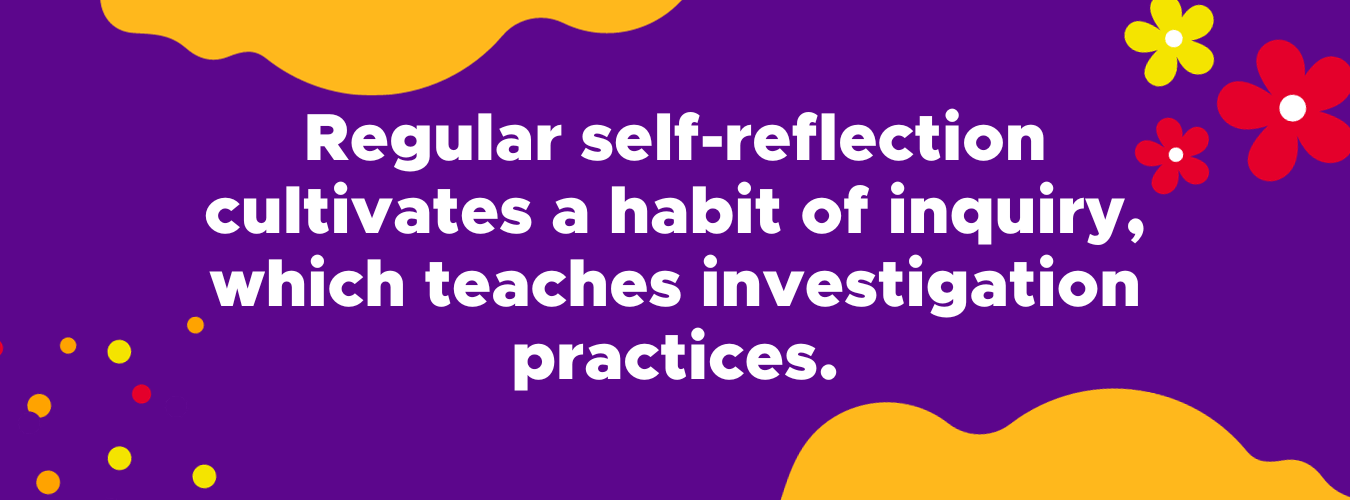
Reflection as a Pathway to Personal Growth
In a world full of change, reflection becomes a guiding light for children. It fosters self-awareness, empathy, personal growth, and confidence. It's not just a momentary pause; it's a lifelong habit that nurtures contemplation and acceptance, resilience and confidence.
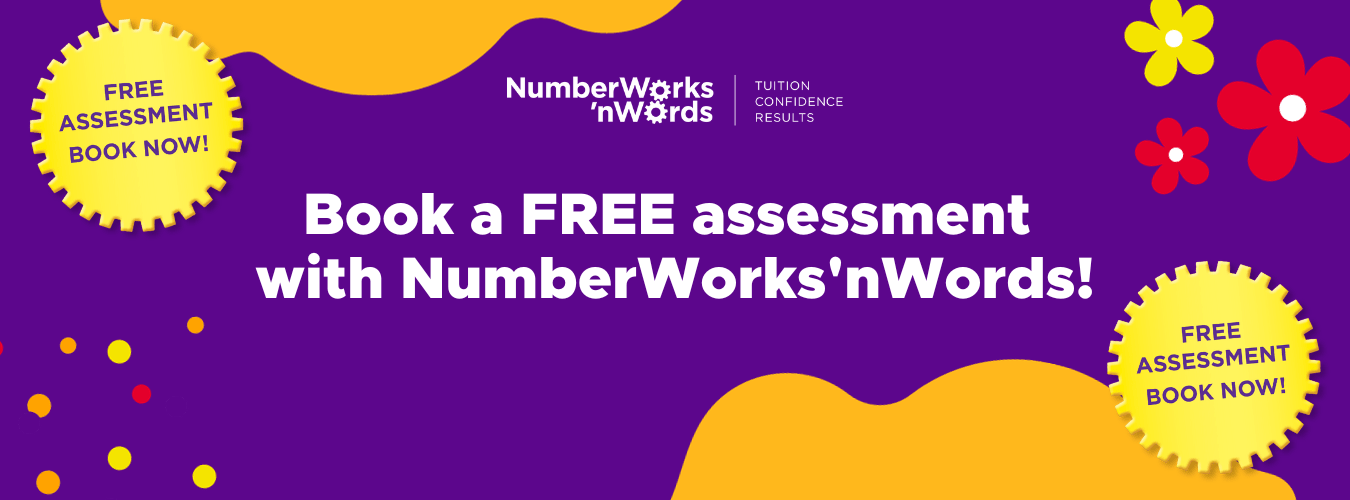
At NumberWorks'nWords, we recognise the transformative power of reflection in teaching. Our approach to maths and English tutoring is grounded in this philosophy, enabling students to reflect on their progress, achievements, their learning, and development. Book your child's free assessment today!



